
Always wanted a black masked lovebird. That will have to wait for after the cat... Love birds
1. Rosy-Faced or Peach-Faced Lovebird (Agapornis roseicollis) Rosy-faced or peach-faced Lovebird is one of the most common and popular lovebird species to be kept as pets. Due to its popularity among breeders, there are countless varieties of these colorful birds.

YellowCollared Lovebird (Agapornis personatus) Care, Diet & More Psittacology
The Yellow Collared Lovebird is a small and colorful parrot species that is native to the grasslands and savannas of southwest Africa. With their vibrant plumage and charming personalities, these lovebirds have become popular pets among bird enthusiasts .

YellowCollared Lovebird (Agapornis personatus) Care, Diet & More Psittacology
Think You Can? Take Our A-Z-Animals Birds Quiz ©South O Boy/Shutterstock.com Also known as rosy-faced, peach-faced lovebirds are the most common type of lovebird that people keep as pets. Their distinctive rosy, or orange-colored cheeks are probably what comes to mind when you think of lovebirds.
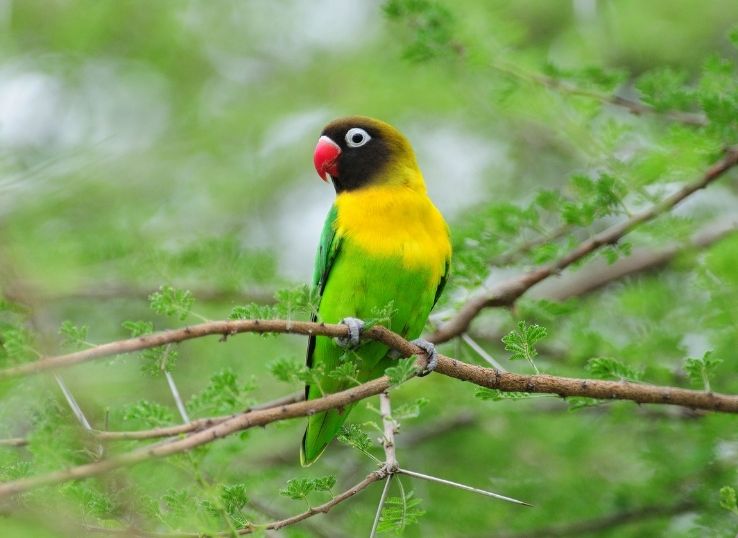
Yellow Collared Lovebirds ( Habitat and Behavior) imparrot
Masked lovebirds, also known as yellow-collared or black-masked lovebirds ( Agapornis personatus) are found in eastern Africa. These lovebirds mainly inhabit Tanzania, southeast of Lake Victoria, with feral populations found in portions of Naivasha, Nairobi and Mombasa, Kenya.

yellow collared lovebird African lovebirds, Pet birds, Beautiful birds
The Yellow Collared Lovebird, also known as the masked lovebird, is a small parrot belonging to the lovebird genus in the Psittaculidae parrot family. They are admired for their calm temperament and boundless enthusiasm. Originating from the Arusha Region of Tanzania, they've also found their way to Burundi and Kenya.

Yellowcollared Lovebird (Agapornis personatus) feeding in the grass Pet birds, Love birds
The Masked Lovebird is properly called the Yellow collared Lovebird (Agapornis personatus) and is a member of the lovebird division of the parrot family. They are native to north-eastern Tanzania in Africa and have been introduced to neighbouring Burundi ad Kenya.
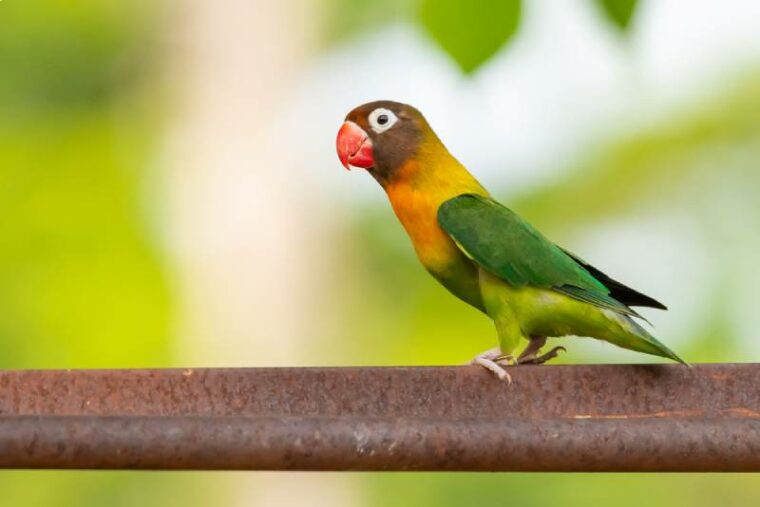
YellowCollared (Masked) Lovebird Personality, Pictures, Food & Care Guide Pet Keen
The yellow-collared lovebird ( Agapornis personatus ), also called masked lovebird, black-masked lovebird or eye ring lovebird, is a monotypic species of bird of the lovebird genus in the parrot family Psittaculidae. They are native to Arusha Region of Tanzania and have been introduced to Burundi and Kenya.
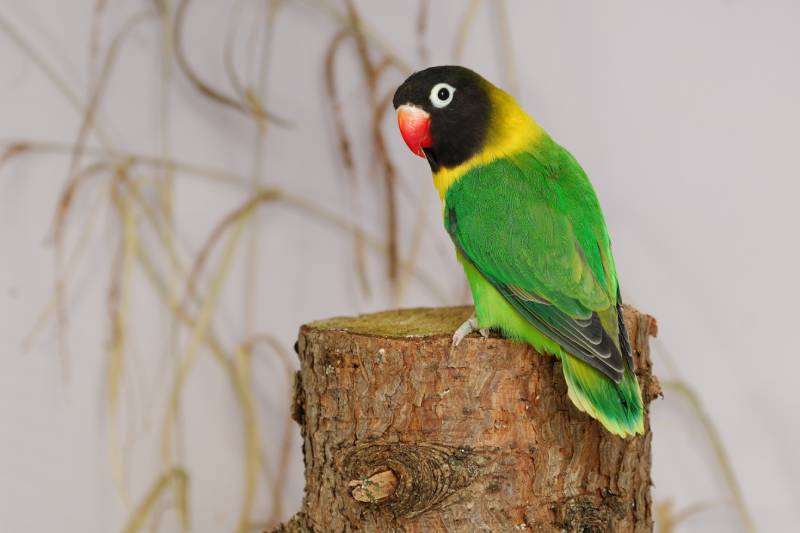
YellowCollared (Masked) Lovebird Personality, Pictures, Food & Care Guide Pet Keen
September 16, 2021 by Team Beauty of Birds Living with a Lovebird (and other Pets): Lovebirds have the fun personality of parrots, with the advantage of being more manageable due to their small, compact size. They are mostly known for their affectionate behavior towards their "chosen mate."
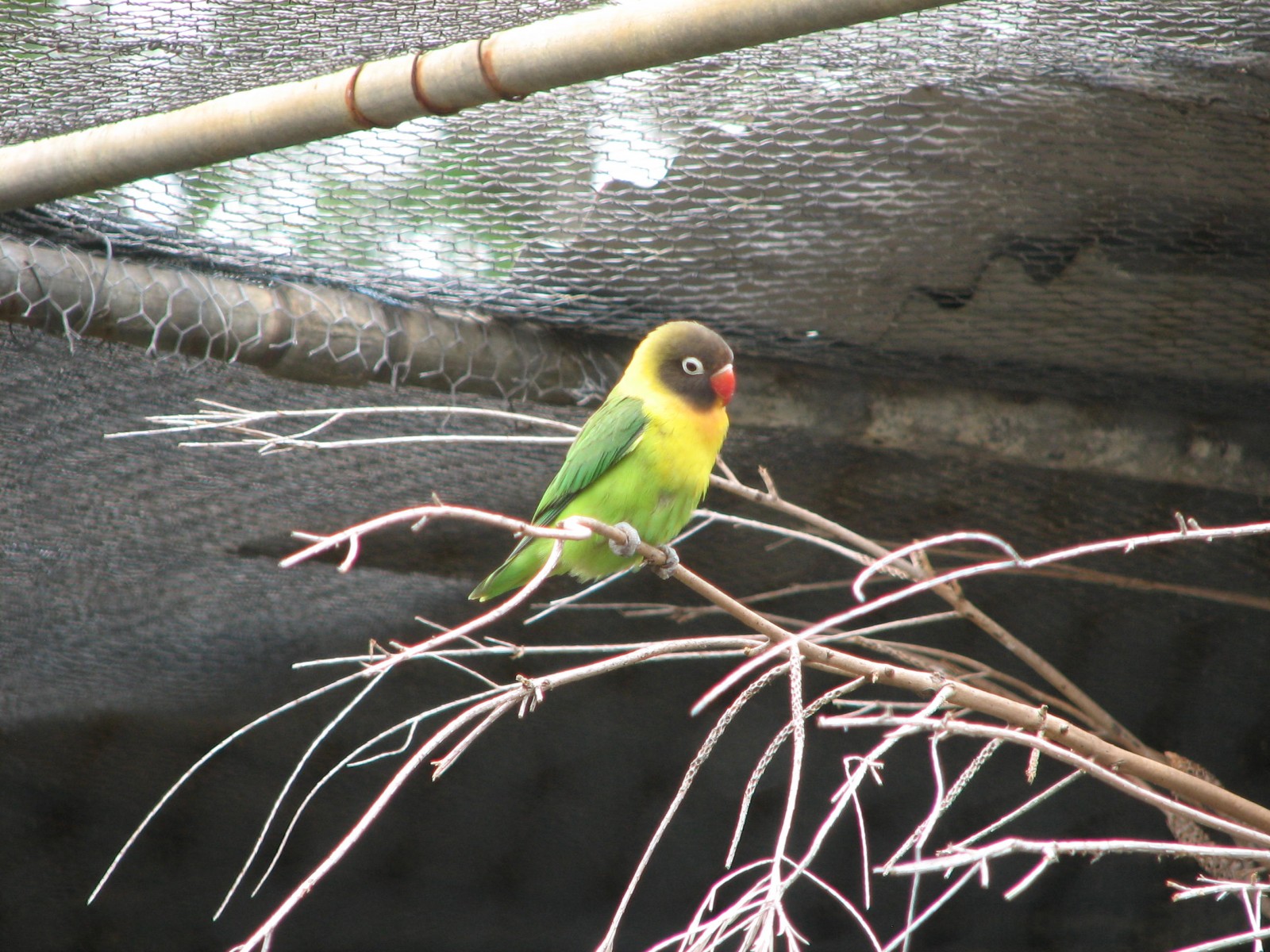
Yellowcollared Lovebird, Adelaide Zoo Trevor's Birding
There are 9 different species of Lovebirds with eight originating from Africa and one originating from Madagascar. There are three common types of Lovebird which are mostly bred and kept as pets (Peach-faced Lovebird, Fischer's Lovebird, and Yellow-collared Lovebird). The other six species are considered rare and rarely kept in captivity.

YellowCollared Lovebird Facts, Pet Care, Behavior, Price, Pictures
Typically the peach-faced lovebird, Fischer's lovebird, yellow-collared lovebird, and black-cheeked lovebird are the ones suitable as pets. Cage & Housing Requirements. For housing a couple of lovebirds, the cage should ideally be at least 18x18x24 inches (width x depth x height), and it should have metal bars spaced no more than 3/8 inches.
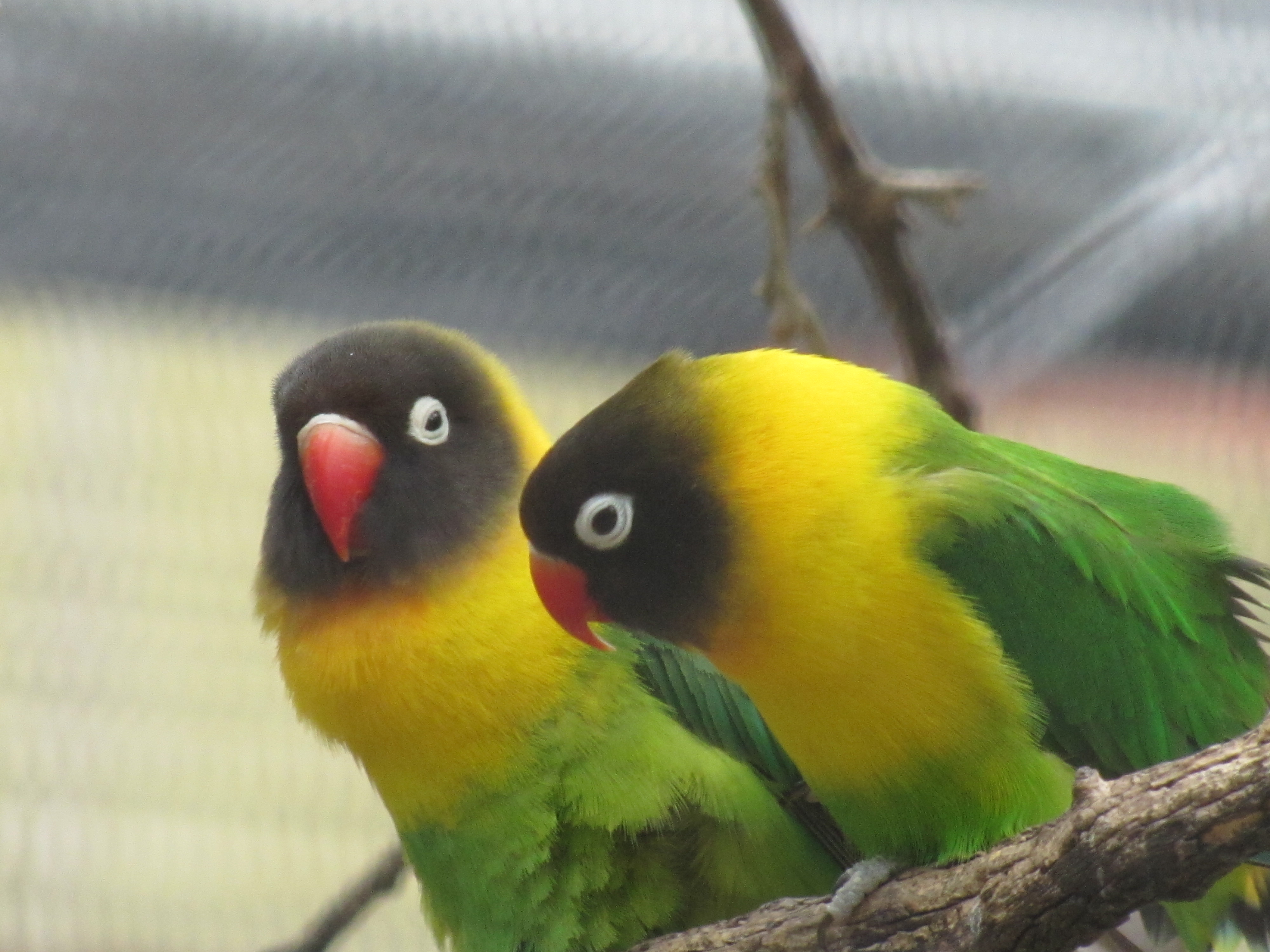
Yellowcollared Lovebird, Adelaide Zoo Trevor's Birding
Shop Now Color Blue, Green, Orange, Yellow Size small Lifespan Up to 20 years Sounds Chatterer, Whistler Interaction Social Other Birds in this family Fischer's Lovebird Peach-Faced Lovebird Quick Facts The lovebird's genus name, Agapornis, literally translates into "love bird." The Greek work "agape" means "love" and "ornis" means "bird."
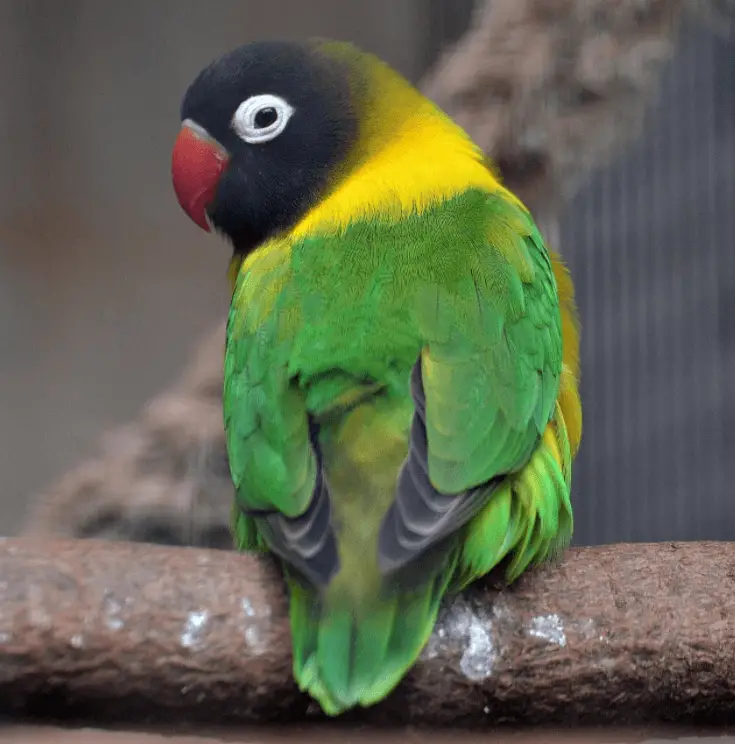
Yellowcollared Lovebird Habitat Subspecies Breeding Distribution Diet
Home > Birds Yellow-Collared (Masked) Lovebird: Personality, Pictures, Food & Care Guide By Kristin Hitchcock Last updated: Aug 22 2023 The masked lovebird is a particular species of lovebird. These birds are a part of the parrot family and are native to northeast Tanzania. This species is similar in temperament to other lovebirds.

Pin on Psitaciformes (En Español)
Albino Yellow (lutino) Pied Violet Aqua As pets This exotic looking bird with its heart captivating characteristics qualifies as a wonderful pet. Yellow-Collared Lovebird Photos Housing A spacious metal enclosure sizing 36X24X24 inches with lots of chewable toys, papers, swing and two natural curved perches is good for housing this bird.

Yellowcollared Lovebird Agapornis personatus African lovebirds, Pet birds, Love birds
Where did lovebirds come from? There are a total of nine species of lovebird parrots. These include the yellow-collared or masked lovebird, Fischer's lovebird, peach-faced or rosy-faced lovebird, Abyssinian or black-winged lovebird, Black-cheeked lovebird, Madagascar or grey-headed lovebird, Nyasa or Lillian's lovebird, red-faced or red-headed lovebird, and Swindern's or Black-collared.
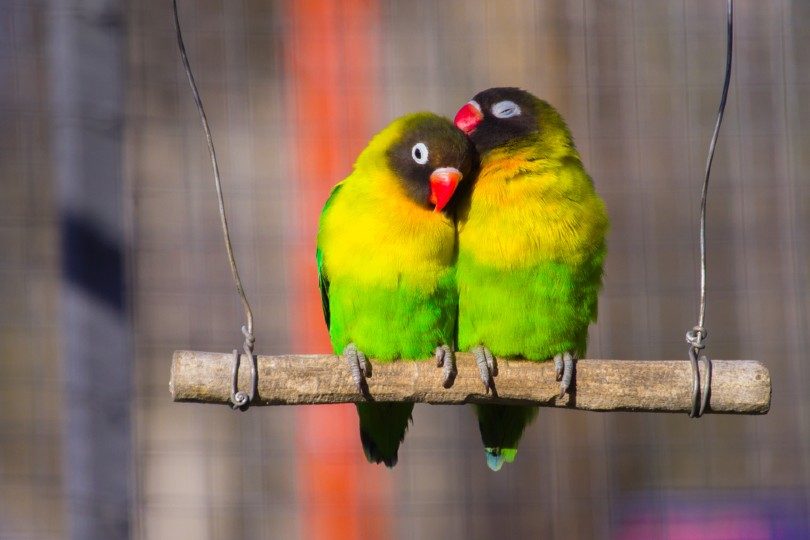
9 Types Of Lovebird Species (with Pictures) Petsterrific!
yellow-collared lovebirdAgapornis personatus ), also called masked lovebird, black-masked lovebirdeye ring lovebird, is a monotypic species of of the genus in the parrot Psittaculidae. They are native to Arusha Region of Tanzania and have been introduced to Burundi and Kenya. [1]

Love Bird (hand fed) Yellow Collar Fly Babies Aviary
Breed Overview. Common Names: Fischer's lovebird, black-masked lovebird, yellow-collared lovebird, peach-faced lovebird. Scientific Name: Agapornis fischeri, Agapornis personata, Agapornis roseicollis. Adult Size: 5 to 6 inches. Life Expectancy: 10 to 15 years, potentially more with great care.